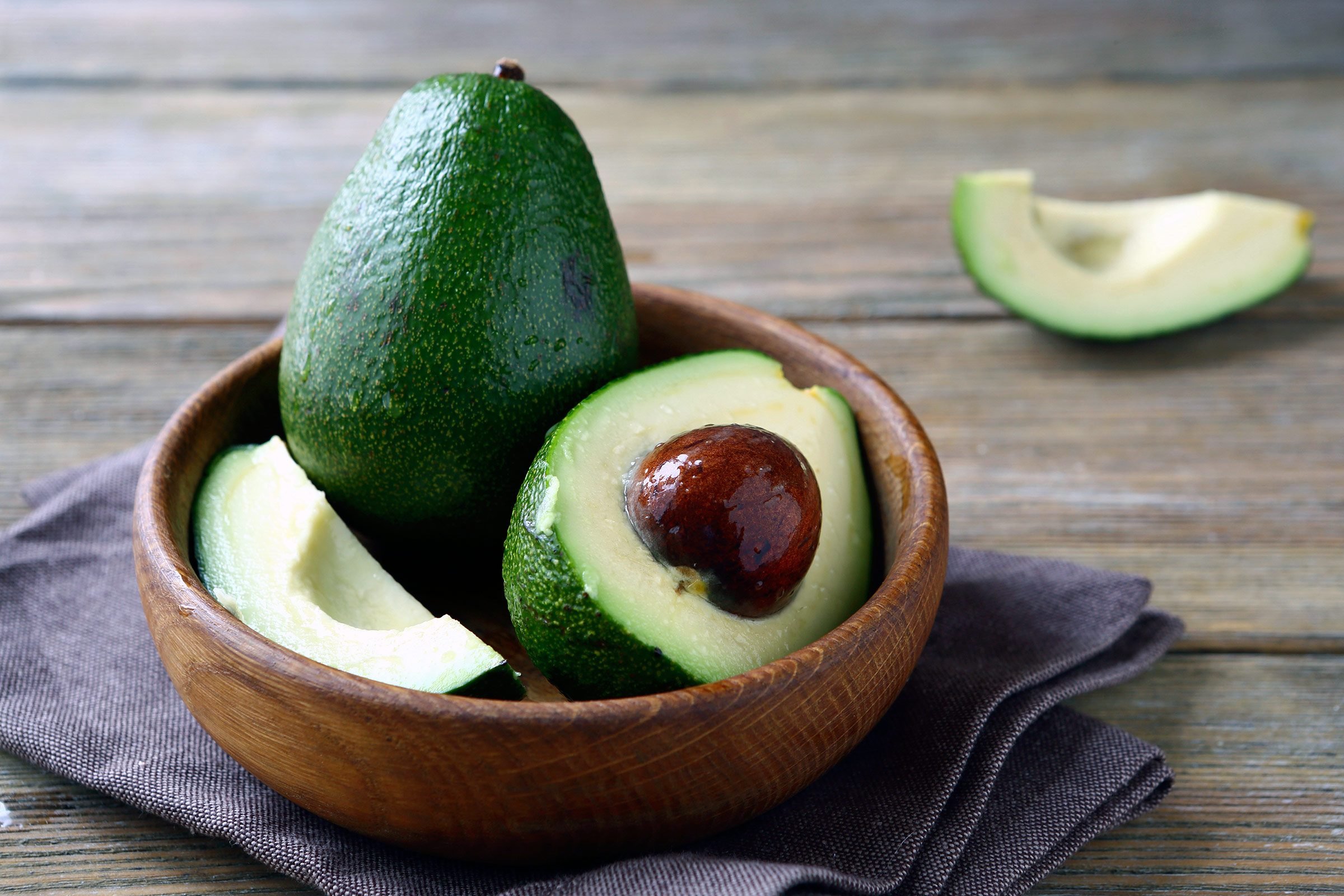
Avocado lowers cholesterol
Of all the drug-free ways to lower your cholesterol, eating avocados is probably the most delicious. Avocados are rich in plant sterols, compounds that were shown to lower cholesterol by blocking its absorption into the bloodstream. They’re also packed with vitamins and minerals, including vitamin E, magnesium, vitamin C, folate, and zinc. Ounce for ounce, one of the health benefits of avocado is that they provide more potassium than bananas! A randomized trial published in JAMA followed a small group of adults with hypertension over a period of two years and found that replacing a carbohydrate-heavy diet with one rich in monounsaturated fats (the same heart-healthy kind found in olive oil) resulted in lower blood pressure and improved lipid levels. Dutch researchers analyzed 60 trials to explore the effects of various fats on cholesterol levels, and also found that replacing carbohydrates with monounsaturated and polyunsaturated fats lead to a decrease in “bad cholesterol” and an increase in “good cholesterol.” Here are some other drug-free ways to lower cholesterol.

Avocado reduces risk of heart disease
Some of the most effective ways to reduce your risk of heart disease are simpler than you’d think. Studies have shown that substituting saturated fat with unsaturated fat—one of the best-known avocado benefits—can reduce heart disease risk better than merely lowering overall fat intake. An analysis of 50 studies and clinical trials showed that a Mediterranean diet, which is high in monounsaturated fat, was effective at preventing metabolic syndrome, a group of risk factors that increase the likelihood of heart problems like stroke or coronary artery disease. Another 20-year study followed more than 74,000 women ages 38 to 63 and found that women who adhered to a Mediterranean-style diet had a lower risk of stroke. These are some other ways to reduce your risk of heart disease and stroke.
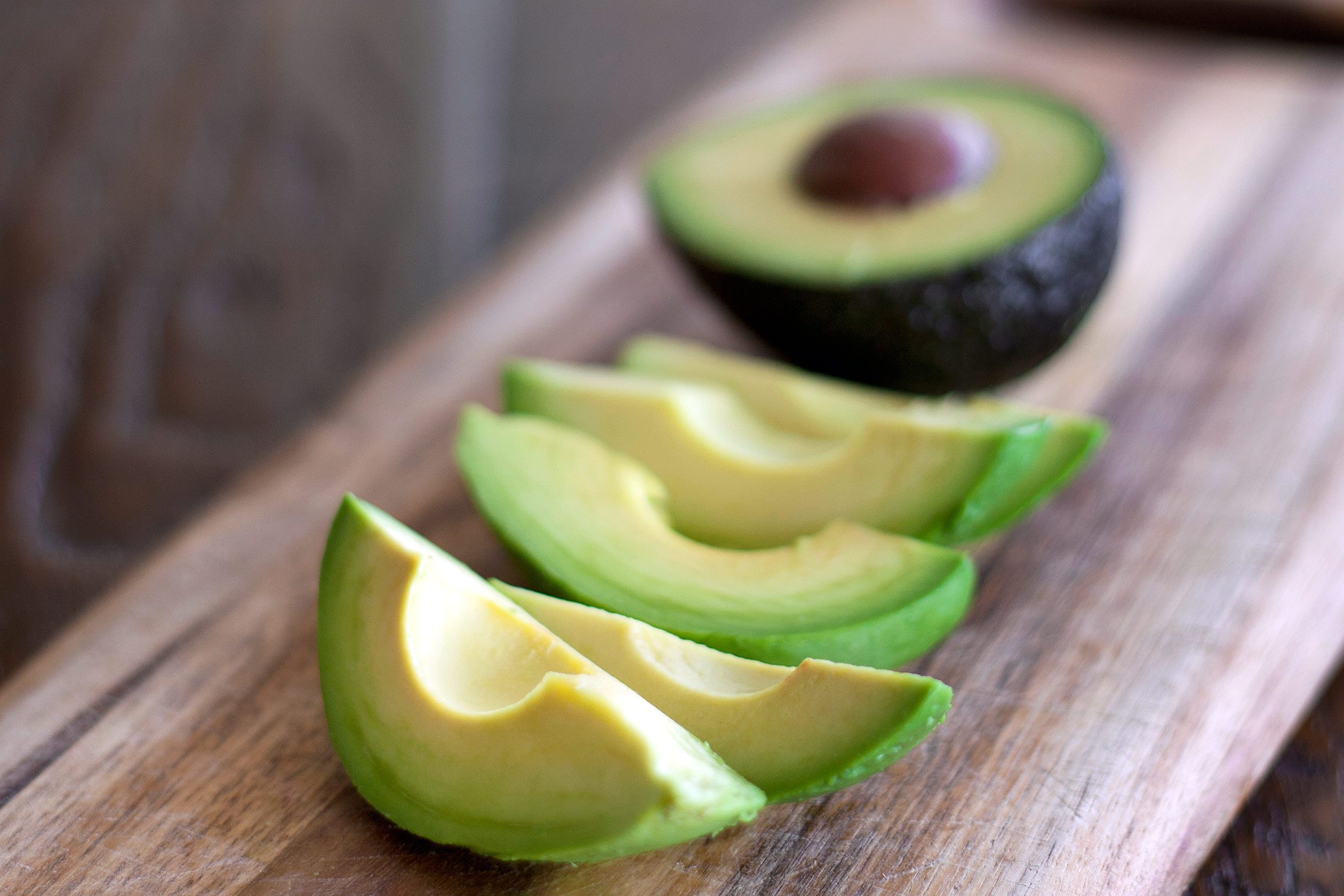
Avocado lowers cancer risk
Another one of the health benefits of avocado is that healthy monounsaturated fats have been shown to help your body better absorb anti-cancer antioxidants such as lycopene (found in tomatoes) and beta-carotene (carrots and sweet potatoes). Be on the lookout for these signs you’re not eating enough healthy fats.
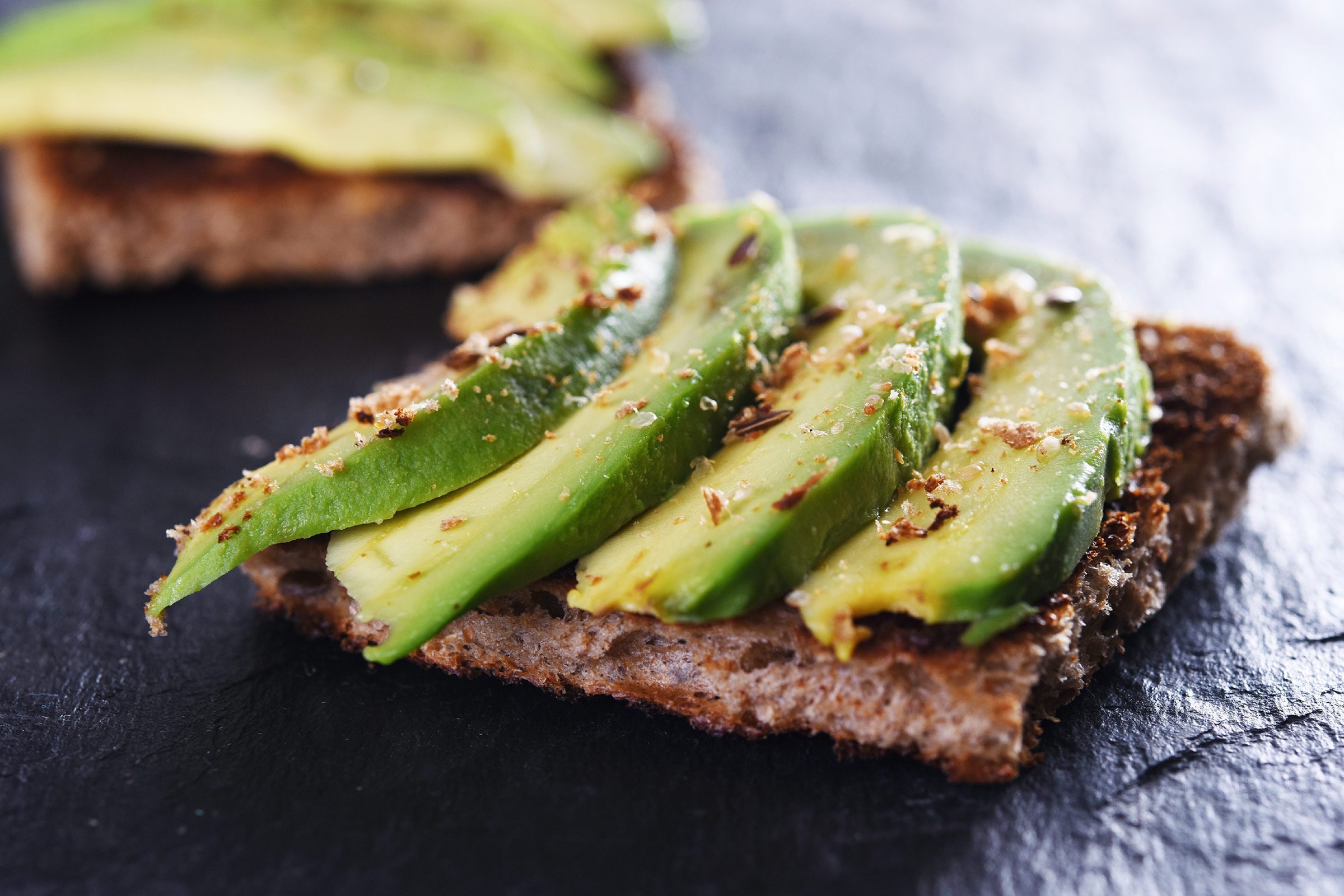
Avocado keeps blood sugar steady
Add avocado to your sandwich—in addition to making it more delicious, you’ll reap the many health benefits of avocado, one of which is keeping your blood sugar levels in check. Its fat (a whopping 25 to 30 grams per avocado) slows digestion, making it easier on your blood sugar, and its soluble fiber also helps stabilize blood sugar levels to help fight insulin resistance. Since fat has no impact on blood sugar, avocados are great additions to a low-GL diet if you eat them in moderation. A study by researchers from Loma Linda University and published in Nutrition Journal found that participants who ate half an avocado with lunch reported feeling satisfied longer with less of a desire to eat more afterward. It also showed that eating avocado resulted in no rise in blood sugar levels, which researchers believe might mean the fruit could be beneficial in the maintenance of weight and diabetes, though further research needs to be done.
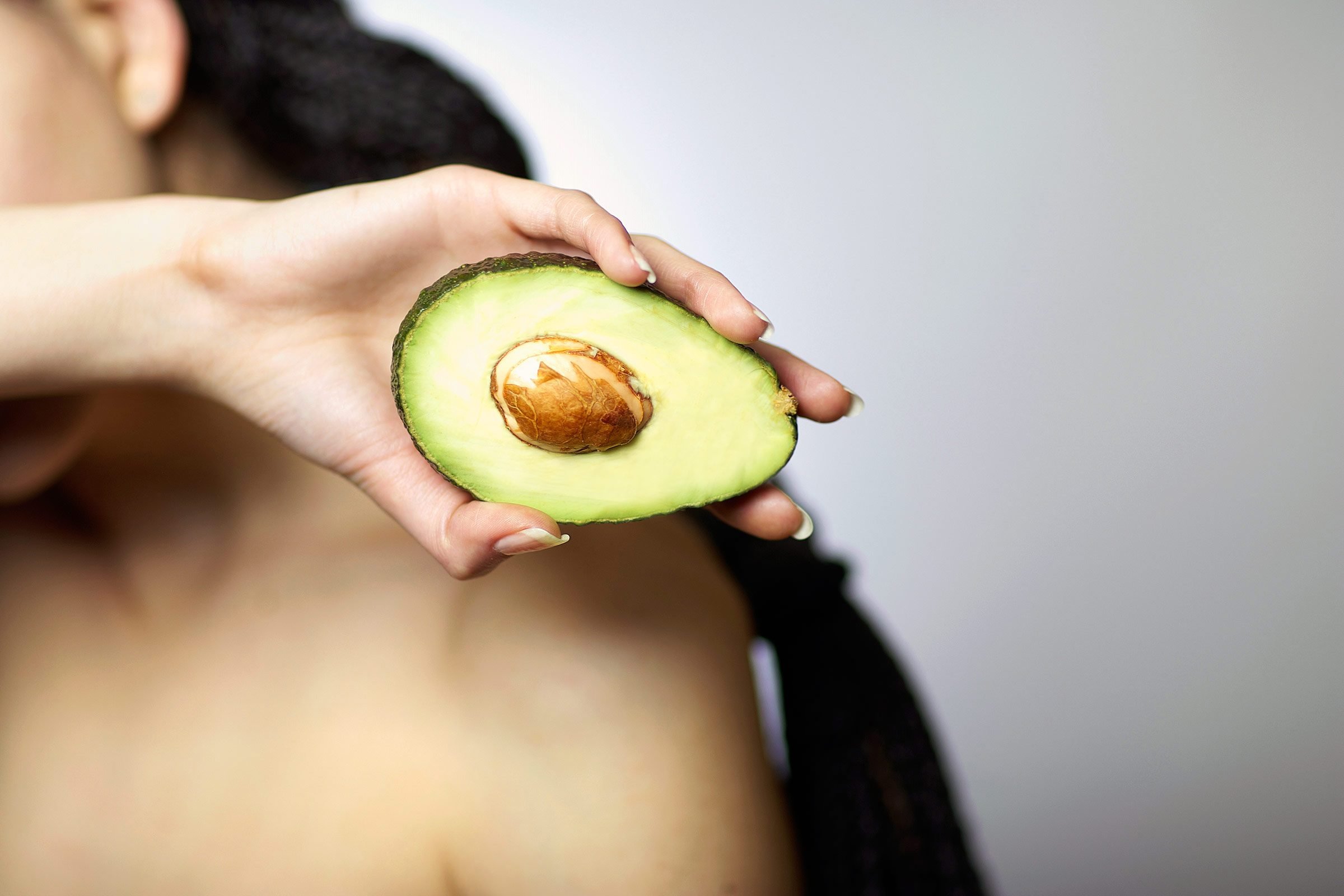
Avocado helps maintain hair health
Some grooming habits can destroy your hair. Surprisingly, covering your locks with avocado isn’t one of them. Moisturizing your hair with avocado makes strands stronger by loading them with protein. Mix a ripe, peeled avocado with a teaspoon of wheat germ oil and a teaspoon of jojoba oil. Apply to freshly washed hair and spread all the way to the ends, then cover your scalp with a shower cap or plastic bag. Wait 15 to 30 minutes so that your hair can reap the avocado benefits, and then rinse thoroughly.
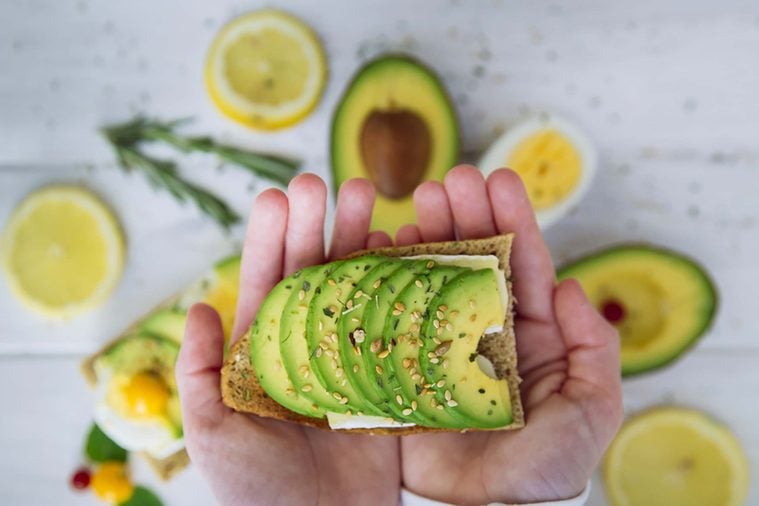
Avocado improves digestive health
Not only does the fiber in avocados stabilize blood sugar, one of the health benefits of avocado is that it improves digestive health. “Fiber helps shift the balance of bacteria in the gut, increasing healthy bacteria while decreasing the unhealthy bacteria that can be the root of some digestive disorders,” says Dr. Josh Axe, DNM, CNS, DC, founder of DrAxe.com, best-selling author of Eat Dirt, and co-founder of Ancient Nutrition. Avocado fat also nourishes the gut’s lining, which decreases the chance of constipation and symptoms of irritable bowel syndrome (IBS). To help keep stomach pains away, avoid these foods your digestive system hates.
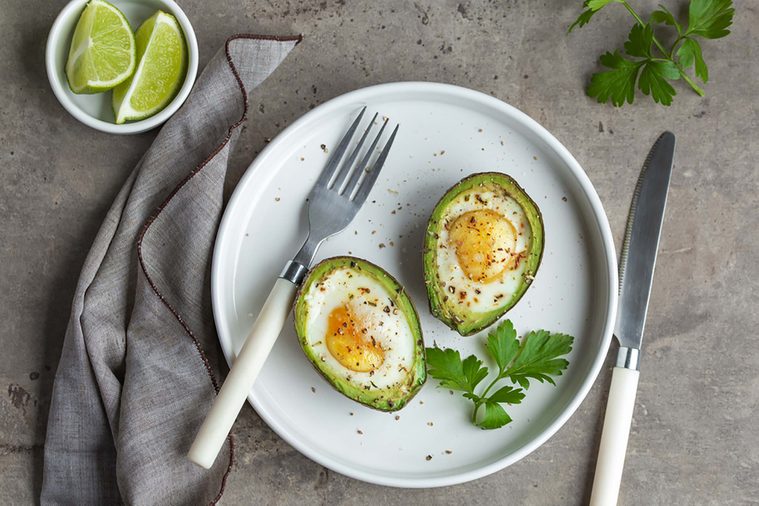
Avocado betters cognitive function
Fatty acids are crucial in maintaining a healthy central nervous system, reproductive system, and cognitive processes. Since their fatty acids are one of the most significant avocado benefits, that makes avocados a pretty great brain food! These acids aid in balancing hormones, which has a direct effect on mood. According to Dr. Axe, “Higher-fat diets might lower depression, anxiety, and other mental disorder risks because they facilitate proper thought-processing, hormone-production, and stress-reduction mechanisms happening within the brain.” While you’re stocking up on avocados, consider picking up these 11 other superfoods that stand the test of time.